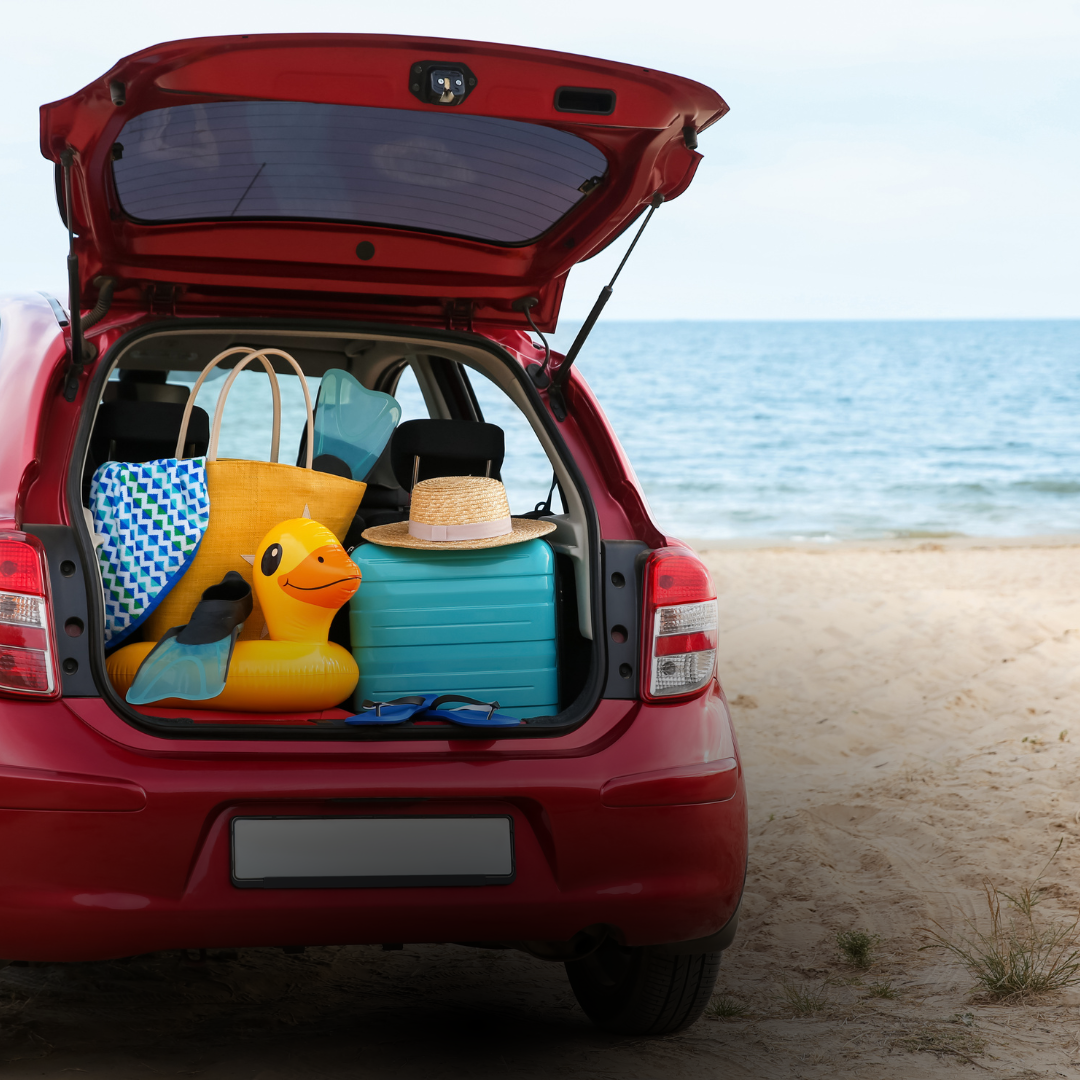Anxiety can be a common struggle for many adults and children, and it can be particularly challenging to manage when traveling. Whether it’s a fear of flying, uncertainty about the destination, or simply feeling out of your element, anxiety can quickly take over and ruin what should be an enjoyable experience. Here are some tips for you or your children on how to manage anxiety while traveling.
What are the Symptoms of Anxiety?
Before we discuss ways to relieve anxiety while traveling, let’s first begin by identify it. When experiencing anxiety, you may notice both physical and mental symptoms. It’s important to have ways to address both types of symptoms to create lasting relief from anxiety. Typically when anxious, we notice the body preparing to handle whatever stressors are thrown its way. If you are feeling anxious, you may start to notice your heart rate picking up and your race pulsing. Your breath becomes shallower and more rapid as this happens. You may notice your muscles tensing and even start to feel yourself sweating. Some people may start to feel agitated and like they can’t sit still. You may notice your stomach feeling uneasy. These symptoms and more can be signs of anxiety setting in. While we want our bodies to respond like this if we are facing a threat, most people don’t enjoy feeling this way when they are trying to travel.
What if I Start Feeling Anxious?
According to Water’s Edge Clinician Amanda Baskin, you want to focus on controlling your breath and relaxing your muscles. Counting as you breathe can be a beneficial distraction and way to make sure you are pacing your breaths in a helpful way. Focus on breathing in slowly through your nose for four seconds and then slowly breathing out for eight seconds. You will want to continue this pattern for several minutes, until you notice your heart rate reaching its average resting rate. Instead of counting your breaths, you may choose to watch a guided video for an added distraction. 
To relax your muscles, focus one muscle group or area of your body at a time. Practice tensing and squeezing the muscle in each area for several seconds, and then allowing it to relax. Repeat this pattern as you move from each muscle group. You may choose to tense and relax a certain muscle group a few times before moving onto the next. This exercise of Progressive Muscle Relaxation can help you to pinpoint where your body is holding unnecessary tension. You can do this exercise anywhere you are feeling tense- on a plane seat, in the back of a car, or even standing in line.
While your body may feel more relaxed after these exercises, your mind may still be reeling. Anxiety has the incredible ability to take over our thoughts and make our brain feel like it is going 100 miles per hour. You may need to mentally ground yourself, distract from the anxiety, or talk back to it. Or maybe a mix of all of these things.
Now Let’s Talk Mindfulness
P.S. Would it even be a Water’s Edge blog post if we didn’t mention Mindfulness?!
To ground yourself mentally, try to remain present. Mindfulness involves paying deliberate attention to the present moment, accepting it without judgment. When we apply this practice to our travels, we become fully engaged in our surroundings, savoring each experience with heightened awareness. By immersing ourselves in the present, we can appreciate the sights, sounds, smells, and tastes of a new place more deeply, fostering a sense of wonder and gratitude. Mindfulness also helps us let go of expectations and embrace the journey. It enables us to savor the small moments, whether it’s sipping a cup of local tea, observing the locals’ daily lives, or simply enjoying a scenic view.
“But how do I become mindful?”
According to Amanda it is important to pay attention to your surroundings. Ask yourself, “what is actively going on around me?” To practice this, tune into your five senses. What can you hear around you? What can you see? Can you feel the seat beneath you? Can you smell or taste anything? Let your senses remind you of what is actually going on around you, not just what anxiety wants you to focus on.
You may find that you feel grounded enough, and just need to distract from your anxious thoughts. Find an activity that engages you, such as reading, solving a crossword puzzle, playing sudoku, anything that captivates your thoughts. If you are in a space where you don’t have access to an activity (like maybe being cramped in the car while traveling with family), you can use mental exercises to distract yourself.
“Try saying the alphabet backwards, starting with Z and working your way back to A.”
-Amanda Baskin, LCSW
Don’t stop when it gets hard, it takes hard work to distract from the anxious thoughts. Similarly, you can try listing items in a category (how many types of soda can you think of?).
There may be times that you need to talk back to your anxiety. This can mean talking to yourself outloud or internally, and reminding yourself that things will be okay. Maybe you take time to remind yourself of the plan you made or all the things going right in the trip. You can talk to yourself about how you can solve the problem causing you anxiety. You can even be your own cheerleader and give yourself pep talks (“You’ve got this! You’re going to make it through. It’s going to be alright.”) Make sure you are letting your own voice speak louder than anxiety’s voice.
Speaking of Talking…Talk to Someone
Speaking of talking, talking to a therapist about traveling can be a valuable and enlightening experience. Exploring the subject of travel and the anxiety it produces with a trained professional provides a unique opportunity to delve into the underlying motivations, desires, and emotions associated with our fears. Whether it’s a fear of flying, anxiety over the unknown or simply a sense of just feeling overwhelmed by everything you need to do before you depart, a therapist can help unravel the complex tapestry of our travel anxieties. Through open and honest conversations, a therapist can assist in identifying any fears, anxieties, or unresolved issues that may be intertwined with our travel aspirations, allowing us to approach our journeys with greater clarity and mindfulness.
Additionally, a therapist can provide practical guidance, helping us establish healthy boundaries, manage expectations, and cultivate a balanced approach to travel that promotes overall well-being. By engaging in therapy centered around traveling, we can enhance our self-awareness, deepen our understanding of ourselves, and embark on transformative journeys that align with our personal growth and fulfillment. At Waters Edge Counseling we offer child counseling as well as adult. Our counselors are licensed professionals that know how to coach you and your child through your fears. Sometimes simply expressing your thoughts and fears can be a powerful way to ease anxiety.
Make a Plan, Stan.
Now, I know someone of you are not named “Stan”, however, we can all benefit from this technique. A lot of anxiety can be eased by having a plan. Research your destination and make a list of things you want to do and see. Checklists play an indispensable role in ensuring smooth and organized travel experiences. They serve as valuable tools to help us stay prepared and minimize the chances of forgetting essential items or tasks. Prior to a trip, a well-constructed checklist helps us cover all the necessary pre-departure activities, such as packing appropriate clothing, toiletries, travel documents, and any specific items relevant to our destination. By systematically ticking off items on the list, we can feel confident that we haven’t overlooked anything crucial. During the journey, checklists can aid in managing our itinerary, keeping track of reservations, transportation arrangements, and sightseeing plans.
Note to mention, they also serve as a useful reference for important phone numbers, emergency contacts, and essential information about our destination.  Moreover, checklists are especially beneficial when returning home, as they help ensure that we complete post-travel tasks like unpacking, laundry, and addressing any outstanding travel-related matters. By relying on checklists, we alleviate stress, save time, and enhance our overall travel experience by fostering a sense of preparedness and organization. If you’re traveling by plane, make sure you know what to expect at the airport and during the flight. Having a sense of what’s to come can alleviate some of the unknowns that trigger anxiety.
Moreover, checklists are especially beneficial when returning home, as they help ensure that we complete post-travel tasks like unpacking, laundry, and addressing any outstanding travel-related matters. By relying on checklists, we alleviate stress, save time, and enhance our overall travel experience by fostering a sense of preparedness and organization. If you’re traveling by plane, make sure you know what to expect at the airport and during the flight. Having a sense of what’s to come can alleviate some of the unknowns that trigger anxiety.
Last But Not Least: Take Deep Breaths
(We’re talking the kind breaths you can feel in your belly)
As Amanda mentioned, there are many techniques for dealing with anxiety. Taking deep breaths that you can feel in your stomach is extremely helpful when feeling anxious. That’s because when we experience anxiety, our body’s stress response is activated. This leads to shallow and rapid breathing. By consciously practicing deep breathing exercises, we can counteract these physical symptoms and activate the body’s relaxation response. One technique is to breath in for eight counts and out for eight counts. This technique increases the oxygen supply to the brain and triggers the body’s parasympathetic nervous system, which helps to calm the mind and reduce anxiety levels.
Furthermore, Deep breathing also focuses our attention on  the present moment, diverting it from anxious thoughts and promoting a sense of grounding. By incorporating deep breathing into our daily routine or using it as a coping strategy during moments of heightened anxiety, we can cultivate a sense of inner tranquility and regain control over our emotional well-being. Our counselors can teach you breathing techniques that can be done while sitting on a plane or while waiting in line at the airport.
the present moment, diverting it from anxious thoughts and promoting a sense of grounding. By incorporating deep breathing into our daily routine or using it as a coping strategy during moments of heightened anxiety, we can cultivate a sense of inner tranquility and regain control over our emotional well-being. Our counselors can teach you breathing techniques that can be done while sitting on a plane or while waiting in line at the airport.
Start Receiving Support From Therapists in Savannah, GA
Summer is a great time to relax and unwind, but it is still important to continue caring for your mental health. You can connect with a professional counselor at Waters Edge Counseling to help support your mental health. Our team would be honored to offer support from our Savannah, GA-based practice. You can start your therapy journey by giving us a call at 912.319.5552 or emailing us at [email protected].
Other Services Offered With Waters Edge Counseling
We understand that you may experience issues with more than one mental health concern at a time. This is why we are happy to offer support with a variety of mental health services. Our team is happy to offer support with multiple mental health services including online counseling, clinical supervision, coping after a cancer diagnosis, and SCAD student counseling. We are also happy to offer therapy for anxiety, depression, eating disorders, substance abuse, teen substance abuse, and counseling for men. In addition, we also offer counseling for teens, child counseling, family counseling, Christian counseling, grief counseling, and marriage counseling.


